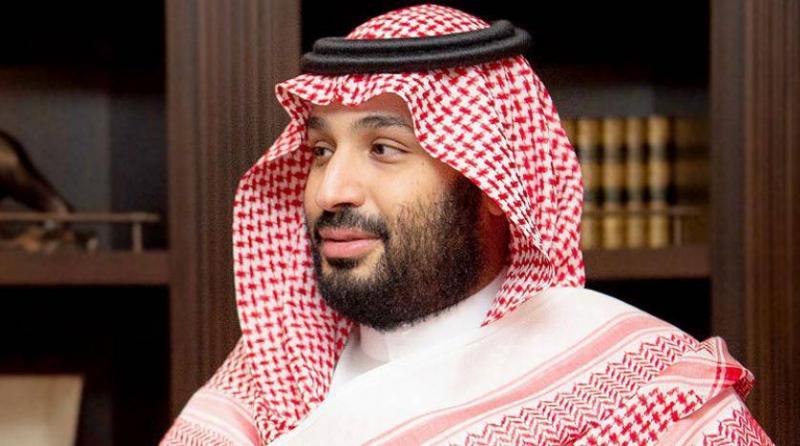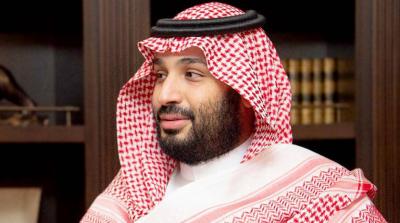Crown Prince Mohammed bin Salman of Saudi Arabia is striving to reorganize relations in the Middle East by cooperating with former adversaries and arranging to cut back oil production from the Organization of the Petroleum Exporting Countries (OPEC), similar to what occurred yesterday, which surprised global markets. Bin Salman indicated he is prepared to rely on himself without assistance from the United States to achieve Saudi interests, whether that means re-establishing relations with U.S. rivals like Iran or reducing oil supplies to the market, provoking consumer anger. This strategy aims to create conditions that allow Saudi Arabia to focus on Mohammed bin Salman’s extensive economic transformation plan known as "Vision 2030," into which hundreds of billions of dollars are being funneled, hoping to open the kingdom's conservative doors to business and tourism amid increasing regional competition.
Analysts say the strategic shift began in 2019 after devastating attacks on facilities belonging to Saudi Aramco, which led Riyadh to question U.S. security commitments to the region. This shift gained momentum following Israeli strikes on Iranian targets. Saudi analyst Abdulaziz Sager stated, "Saudi Arabia is moving from disengagement to engagement to allow it to focus on moving forward with Vision 2030." The kingdom has made intensive diplomatic efforts, restoring ties with Iran and agreeing to rapprochement with Syria in an attempt to rebuild regional alliances instead of fully relying on the U.S., its long-standing ally. Reuters reported that Saudi Arabia plans to invite Syrian President Bashar al-Assad to attend the Arab League summit hosted by Riyadh in May.
### Joining the Shanghai Cooperation Organization
After declaring its decision to join the "Shanghai Cooperation Organization," led by China, as a sign of establishing a long-term relationship with Beijing at the expense of the U.S., a Saudi official confirmed that the U.S. and China are both very important partners for Riyadh. The official, who requested anonymity, noted, "We certainly hope not to participate in any competition or conflict between the two superpowers. We are not a superpower, but we are an important player in the region and the global economy." John Kirby, White House National Security spokesman, stated on Monday that Riyadh remains a strategic partner for Washington even if the two sides do not agree on all issues, adding that Washington and Riyadh are working on addressing shared security challenges.
The OPEC organization, led by Saudi Arabia and its allies, including Russia, known as OPEC+, announced further production cuts of approximately 1.16 million barrels per day, which displeased the United States. The Gulf Research Center, based in Saudi Arabia, indicated that OPEC's reductions suggest "the ability of major oil producers within the OPEC+ alliance to free themselves from Western - American pressures, enhancing their decision-making independence in a way that prioritizes their interests first, despite the previous cuts resulting in a wave of American anger." Jim Krane, a researcher at the Baker Institute at Rice University, remarked, "We are in an oil market where Saudi Arabia comes first, and not only do producers make more profits, but they also enjoy greater geopolitical leverage when markets face shortages."
### Restoring Bilateral Relations with Iran
Saudi Arabia forged a significant agreement with Iran, brokered by China, to restore diplomatic relations after years of bitter rivalry that fueled conflict across the Middle East. Elizabeth Kendall, an expert on Middle Eastern affairs at Girton College, University of Cambridge, stated that the sudden shift may have been driven by the escalating confrontation between Israel and Iran. She added, "Saudi Arabia likely hopes to avoid getting embroiled in another regional conflict by improving relations with Iran, thus removing the risk of another direct Iranian attack on its infrastructure like the 2019 assaults that disrupted Aramco's operations."
The Syrian Ministry of Defense reported that Israeli forces carried out airstrikes on Iranian sites in Syria on Sunday. Western intelligence sources indicated that bases in central Syria, where Iranian personnel are stationed, were targeted. The attack, the latest in a series of strikes on Iranian military facilities in Iran's close ally Syria, raised the specter of a wider regional confrontation that could put U.S. Gulf allies in the crosshairs if military operations escalate. Previous airstrikes by Iranian-backed Yemeni Houthi forces on Saudi oil sites and a fuel depot in the UAE revealed the ambiguity surrounding the security role of the U.S. toward its Arab allies, prompting Riyadh to seek to de-escalate tensions with Tehran and diversify its security partners.
Bilal Saab, director of the Defense and Security Program at the Middle East Institute in Washington, stated that there has been no serious dialogue either within the U.S. government or with the Saudis regarding the terms under which Washington would defend Saudi Arabia in the event of an attack. Saab added that "the Saudis do not want to be caught in a fierce battle between Iran and the United States; they do not trust that Washington will protect them."
### Saudi Perspective Not Incorrect
The growing relations between Riyadh and Beijing have raised security concerns in Washington, which claims that China's attempts to exert its influence globally will not change U.S. policy toward the Middle East. Shadi Hamid, a researcher at the Brookings Institution in Washington, noted that Saudi Arabia's view that the U.S. is increasingly disengaging from the region is not entirely incorrect. He added, "The Crown Prince has decided to secure himself in both respects, either by yielding to reality or as a means to provoke the U.S. to pay more attention to its security concerns." Hamid concluded, "The U.S. was annoyed but did not respond in any way, which encouraged Saudi Arabia to continue to strengthen its ties with America's main rivals."




